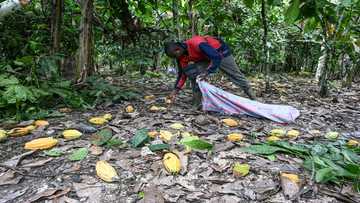Argentine shopkeepers struggle to keep pace with soaring prices
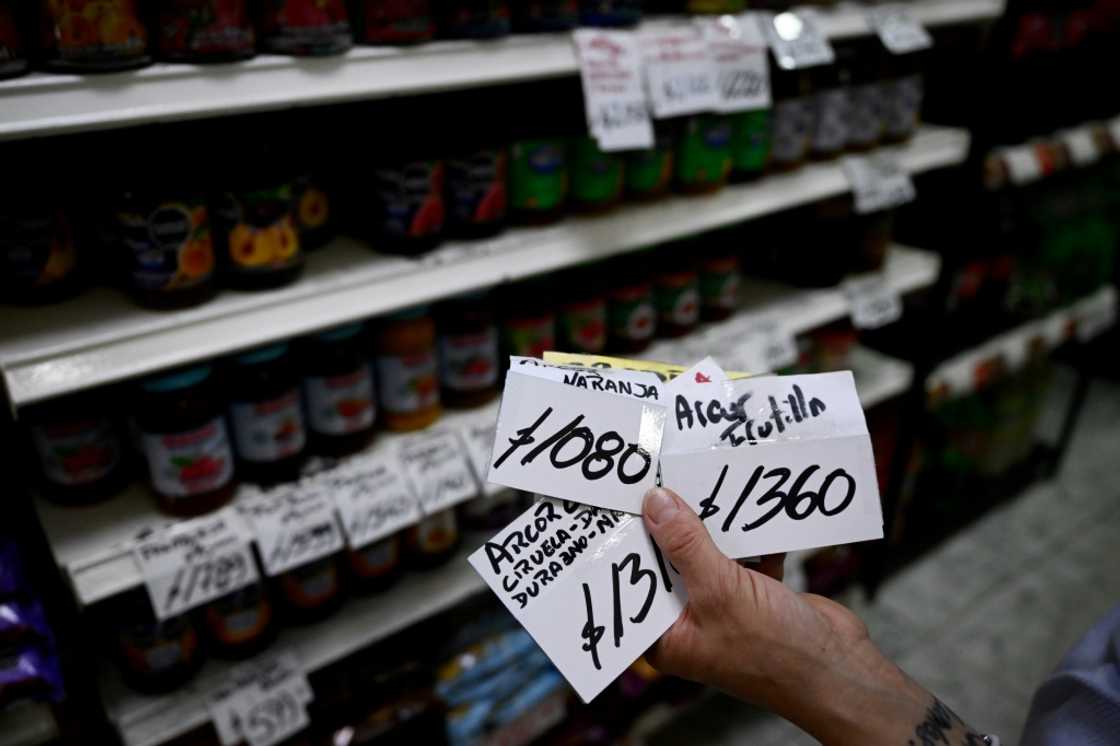
Source: AFP
Paola Basso sighs as she hastily sticks price tags one on top of the other in a suburb of Buenos Aires, as the cost of goods soars after the election of libertarian outsider Javier Milei.
"It doesn't stop," Basso said.
Annual inflation in Argentina is already at 143 percent, and prices have risen further after the outgoing government this week eased price controls on basic goods -- which Milei is expected to scrap.
"Customers ask us to ... buy eggs individually. It hurts, people are in need and it's like taking away their dignity, but the prices are crazy," said the grocer in Moron, a working-class neighborhood in the western suburbs.
On the shelves, some products have up to four labels superimposed, testifying to the dizzying inflation.
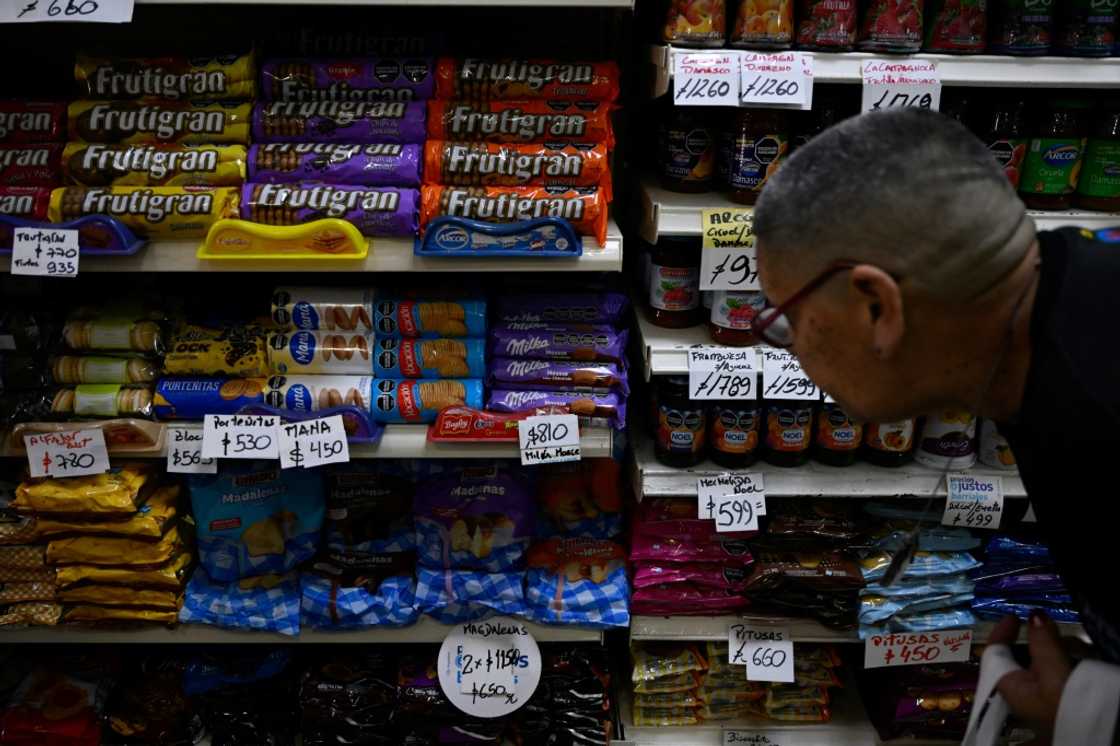
Source: AFP
"These are crazy days," said Paola's husband Fernando Savore, vice-president of the Buenos Aires grocers' federation.
"Although we already changed prices last week. We saw increases of around 25 to 30 percent at the wholesalers" since the election.
He said pasta had gone up 50 percent and cleaning products 30 percent.
Devaluation expected
Milei, a free-market champion who is opposed to state intervention in the economy, will take office on December 10.
The imminent end of the agreement on price controls is fanning inflation even more, said economist Hernan Letcher.
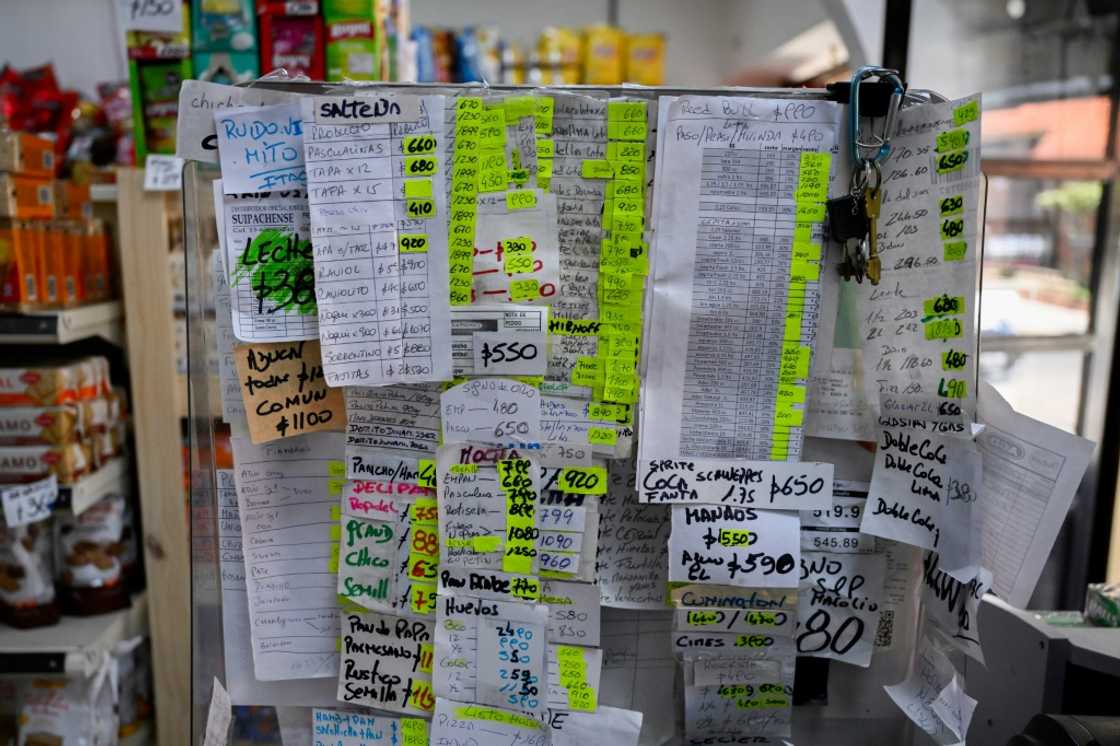
Source: AFP
"The increase will be more marked next month, because the market expects a significant devaluation (of the peso) when Milei takes office, and therefore the possibility of an inflationary resurgence," he told AFP.
The government has in recent years kept strict control of the exchange rate of the peso, at great expense to the state, and Milei has said he would push to eliminate these controls.
'It's exhausting'
In the Moron supermarket, client Mario Amor, 70, scrutinizes the price tags.
"It's has gone up a lot again. I am looking to see who has the best prices.I don't know where to buy," he said, leaving with empty bags.
In another aisle, seamstress Clara Tedesco, 60, is "horrified" to see the price of cheese "has gone up again this week".
"It's exhausting, you analyze the prices, you go from one place to the next. You compare, you calculate, and you come back. Buying groceries is harder than finding a husband."
In the Mataderos neighborhood, butchers leave their priceboards empty.
"We no longer waste time writing them down, it changes every two days," said the manager of one shop, Evelyn Garcia.
"The customers know it, they don't get angry. There is more sadness than anger," she said.
In beef-mad Argentina, sales of the most expensive cuts of meat have declined in favor of lower-quality cuts or cheaper pork chops.
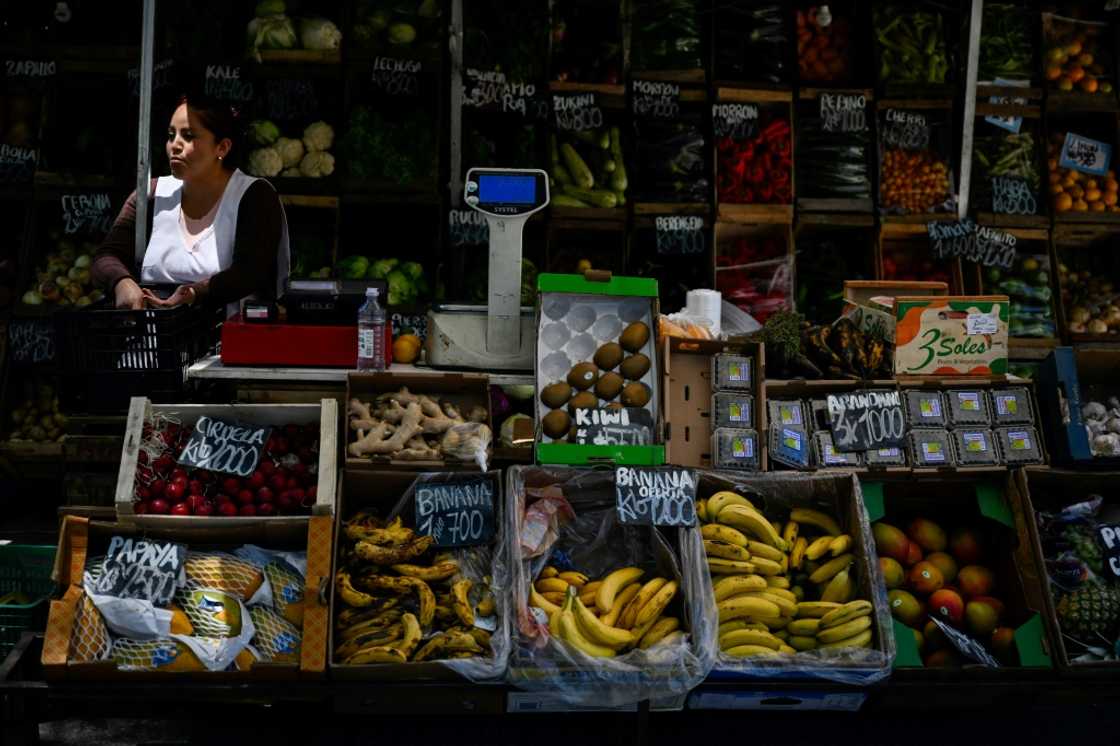
Source: AFP
"People already changed their habits so that there is still a bit of meat on their plates. Now, I don't know what they're going to do. Everything has gone up by more than 10 percent this week," said Evelyn, whose store was empty.
At a street market near Moron, Clarisa Gomez dusts off a crate of kiwis at her fruit and vegetable stand, where all prices have soared this week.
"People buy two apples, one banana. If this continues I will have to sell by the slice."
New feature: Сheck out news that is picked for YOU ➡️ click on “Recommended for you” and enjoy!
Source: AFP

